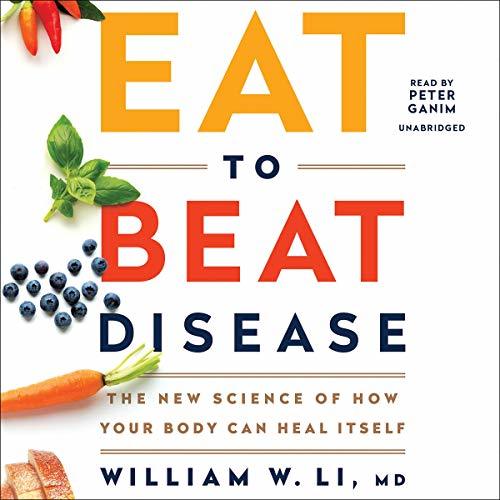We all love eating and we all want to be healthy. From a very young age we know that an apple is better for us than a doughnut and that Diet Coke is no replacement for water because on some level we feel it immediately. As is our nature, we tend to focus on the negatives. "What terrible thing will this food do to me in the short term and the long run?" We don’t often consider how the nourishing food may help us beyond sating our hunger.
That’s where Eat to Beat Disease comes in.
Dr. William Li has made a career of scientifically studying the effects of food. There’s no doubt in my mind that the things we consume on a regular basis are the defining factor in things like cancer, diabetes, mental and cardiovascular health. What makes this book most interesting, however, is that the focus is less about what to avoid and more about what to seek out and enjoy.
Because let’s be honest, when your plate is already filled with good stuff there’s less room for dessert.
One of the foods that particularly jumped out at me every time it was mentioned is blueberries. I’ve heard for years that they’re good for cognitive health, but I didn’t realize how beneficial they are to the immune system, especially post-workout. After a rigorous training session the immune system takes a dip while our bodies recover from the stress we just put ourselves through. Eating 1.75 cups of blueberries fills the gap, and then some. I'm going through a lot more blueberries these days.
That’s just one example of a food with immediate short-term benefits.
Now, I’m not completely sold on Dr. Li’s arguments against red meat and eggs. But who am I to argue with the man who’s done countless hours of research in medical journals? No one, that’s who. He makes a solid case with sources to back up his claims, of course. But I won’t be cutting back on either in favor of tofu and quinoa anytime soon. I’m here for a good time, not a long time.
Which isn’t to say I’m going to accept his arguments in favor of wine and beer (in moderation), either.
Anyone looking to improve their diet could do far worse than Eat to Beat Disease. Knowing why something is good and how it specifically benefits you might be just the motivation you need. I’ve been eating pretty clean for years now and found most of the information affirming, and I still enjoyed learning more. The meal plan at the end of the book cuts away at any and all excuses for anyone on the fence, but after hearing everything else Dr. Li has to say those excuses probably aren’t looking any more appealing than a dried up old doughnut.
I listened to the audiobook.
As listens go, this one is rough. The narrator does an admirable job with all the foreign and medical words, but his cadence and tempo have less personality than some answering machines from the early 90’s. I actually found the information easier to digest by speeding it up, which usually hurts my retention. Your mileage may vary.
All in all, while this isn’t my favorite food book it’s definitely worth the time and money.

























